In football’s competitive realm, the highest-paid managers epitomize excellence, blending strategic brilliance and leadership. From Diego Simeone’s resilience at Atletico Madrid to Pep Guardiola’s visionary tactics with Manchester City, their salaries mirror their indispensable roles in shaping their clubs’ destinies. Let’s explore the highest paid managers football together with bestsoccertips.com through the following article!
Who is the highest paid football manager in the world?
1. Diego Simeone – Atletico Madrid (Annual Salary: £30 million)
It would come as a shock to many that the highest-paid coach in the world is Atletico Madrid’s boss – and by quite a margin. Diego Simeone has twice defeated Barcelona and Real Madrid to lift the La Liga title. Recent years have seen some struggles for him, and this season, Atleti is trailing behind the frontrunners in La Liga.
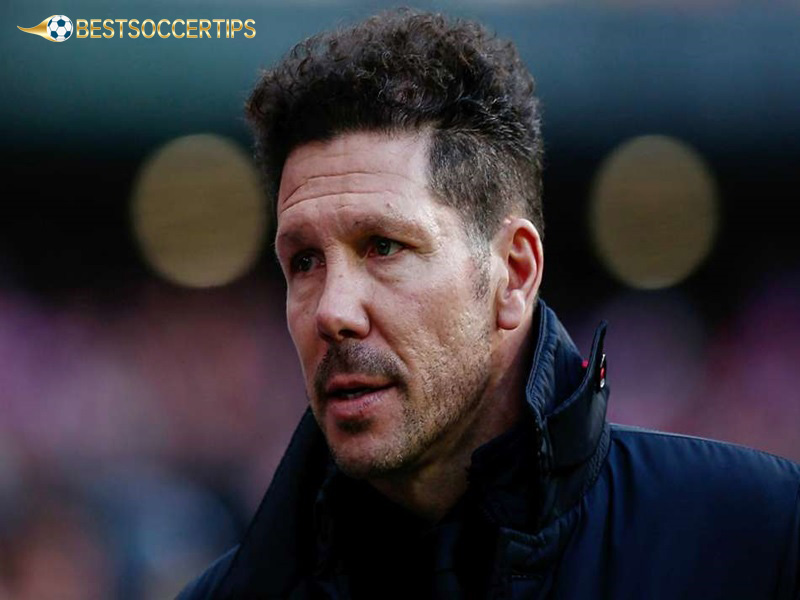
However, that hasn’t affected the work Simeone has done since joining the Colchoneros. Despite not clinching the Champions League in 2015-16, he consistently troubles the Spanish giants. Atletico’s leadership ensured his commitment to the club in November 2023, as he penned a deal until 2027, making him the highest-paid coach in the game. Does he deserve it? Certainly, after 13 years of service.
2. Pep Guardiola – Man City (Annual Salary: £20 million)
Following a treble-winning campaign, many believed Guardiola to be the highest-paid coach globally. While he might be the highest-paid manager in England, he ranks second on this list. However, with four titles in the last five seasons, it’s understandable why he commands such a massive salary – especially when fans consider him the world’s best coach currently.
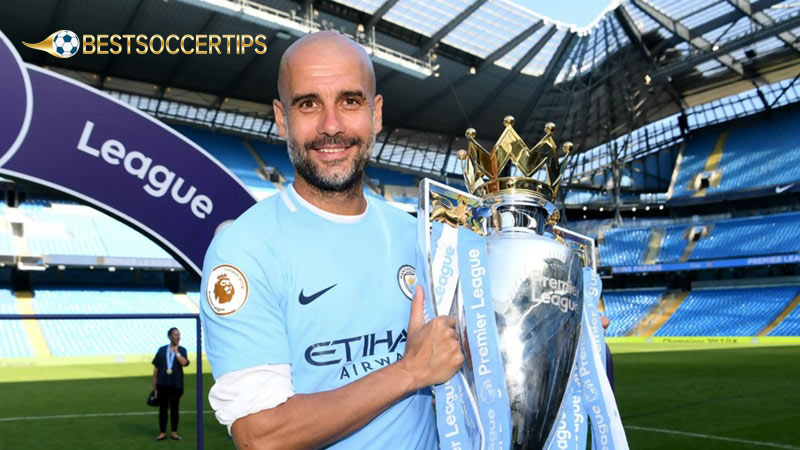
His journey since 2016 might conclude in 2025, as the Spanish coach hasn’t signed a new contract with the Citizens. This would end his tenure at the English club after nine full seasons and a cabinet full of trophies. Guardiola is chasing Sir Alex Ferguson’s record to become the most decorated boss in history, though he still has some way to go.
3. Jurgen Klopp – Liverpool (Annual Salary: £16 million)
The third-highest-paid coach in football, though not for much longer. While Liverpool isn’t known for paying exorbitant player wages historically, they made an exception to keep Klopp at the club for the past nine years. The German coach certainly justifies his salary, having brought significant success to Anfield since his appointment in October 2015, including their first Premier League title.
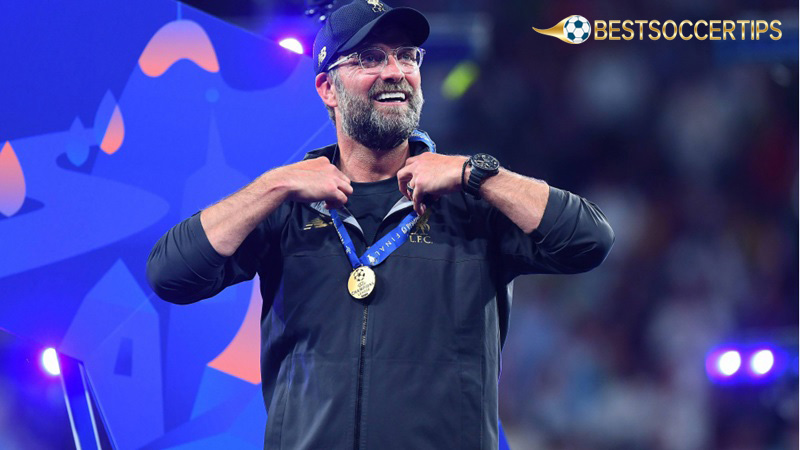
The Reds will soon remove his hefty salary from their wage bill, with Klopp set to depart at the end of the 2023-24 season. However, with his team still in contention for four trophies, he might leave with high achievements – and potentially a handsome bonus for doing so.
4. Steven Gerrard – Al-Ettifaq (Annual Salary: £15.2 million)
Before signing a contract extension in early 2024, Gerrard and Al-Ettifaq endured a winless streak, mounting pressure on the Liverpool legend. This is why the renewal and salary increase came as a shock to the football community.

The new deal shows he has time to turn things around, and the Englishman has started to repay the faith the club’s leadership has in him. Al-Ettifaw’s form post-winter break has been impressive, and all involved will hope Gerrard continues to bring out the best in his players.
5. Max Allegri – Juventus (Annual Salary: £11.3 million)
Despite Juventus’ financial difficulties, the Bianconeri continue to throw a massive sum at Allegri, placing him in the top 5 highest-earning managers in 2024. While overseeing a period of dominance during his first stint, securing 6 Scudettos, and reaching two European finals, his second tenure at the club hasn’t been as successful.
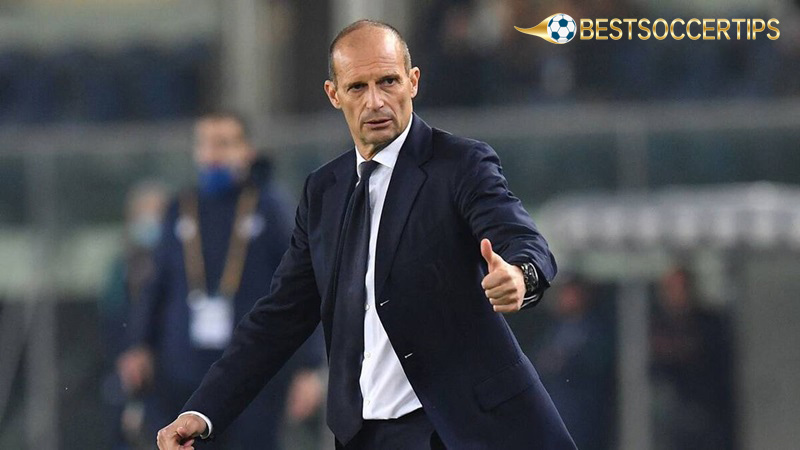
Not aided by off-field troubles that saw Juventus docked 10 points for financial miscalculations in May 2023, Allegri has been trying to stabilize the ship – and has been somewhat successful. Now back in contention for a Champions League spot, the Italian boss hopes to restore the historic club to European football’s summit.
6. Thomas Tuchel – Bayern Munich (Annual Salary: £10.6 million)
Tuchel was a surprising appointment after Julien Nagelsmann left the club in early 2023. The German coach was unexpectedly sacked by Chelsea in 2022 and is now preparing to leave Bayern Munich at the end of the 2023-24 season after a disappointing run of results.
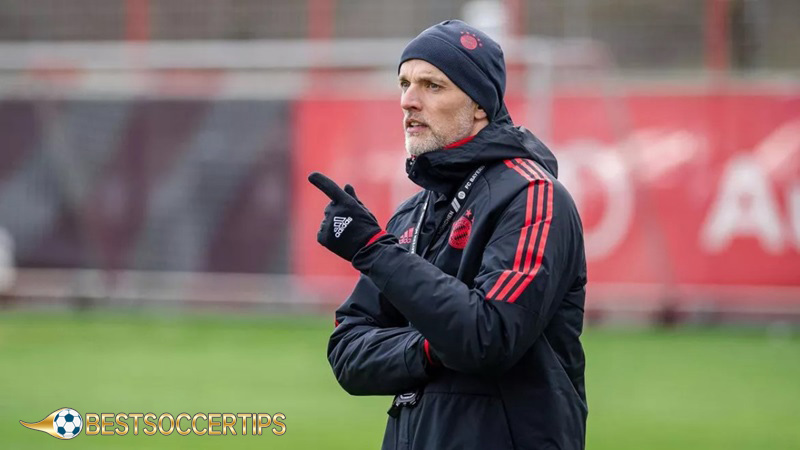
While striving for the Bundesliga title after a dramatic final day of the 2022-23 season, Tuchel and Bayern haven’t had their best season to date. Knocked out of the German Cup by third-division side Saarbruecken in November 2023, they also trail Xabi Alonso’s Bayer Leverkusen in the Bundesliga standings.
7. Mauricio Pochettino – Chelsea (Annual Salary: £10.4 million)
Chelsea hasn’t hesitated to splash the cash under Todd Boehly, and The Blues’ owner bestowed Pochettino with an attractive £10.4 million annual salary upon his appointment as coach in 2023. The former Spurs manager had to trim down expectations this season, with the West London side still underperforming despite the array of talents at their disposal.
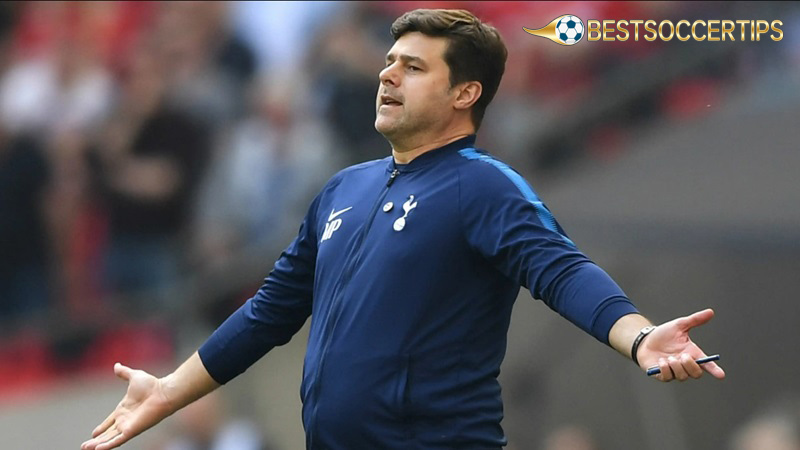
But at least things are marginally better than under Tuchel, Graham Potter, and Frank Lampard in the 2022/23 season. Pochettino believes The Blues are still in the hunt for European qualification this season, as well as the FA Cup, potentially making this season a memorable one for his new team.
8. Carlo Ancelotti – Real Madrid (Annual Salary: £9.6 million)
The most surprising aspect of Ancelotti’s salary is that he doesn’t boast as many big names as some other figures on this list. The Italian maestro has excelled at the Bernabeu since arriving in 2021, adding Champions League and La Liga titles to his impressive trophy cabinet.
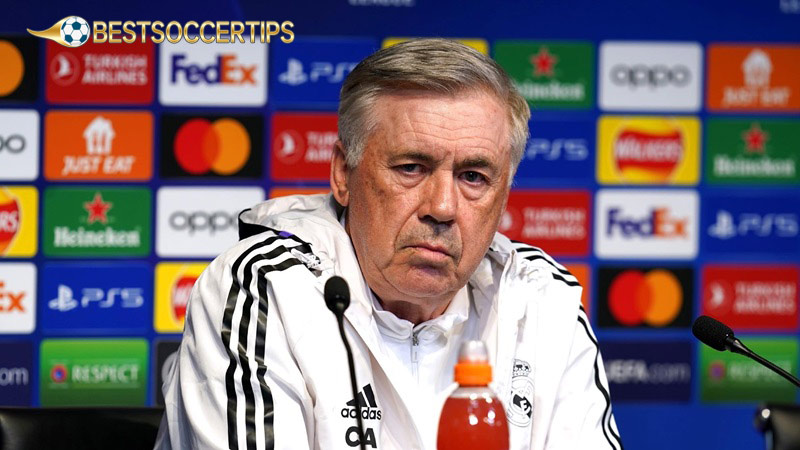
His work at Madrid has been rewarded with a contract extension, as Ancelotti signed a new deal with Los Blancos until 2026, then linked with the Brazil managerial position. Since then, he’s added a Spanish Super Cup to his CV, and with at least two more years in Spain, it would be surprising if he doesn’t clinch more silverware.
9. Erik ten Hag – Manchester United (Annual Salary: £9 million)
The manager of Manchester United will always be one of the most lucrative positions in world football, so it’s no surprise to see Ten Hag among the highest earners – though some may question whether he’ll still be here at the end of the season.
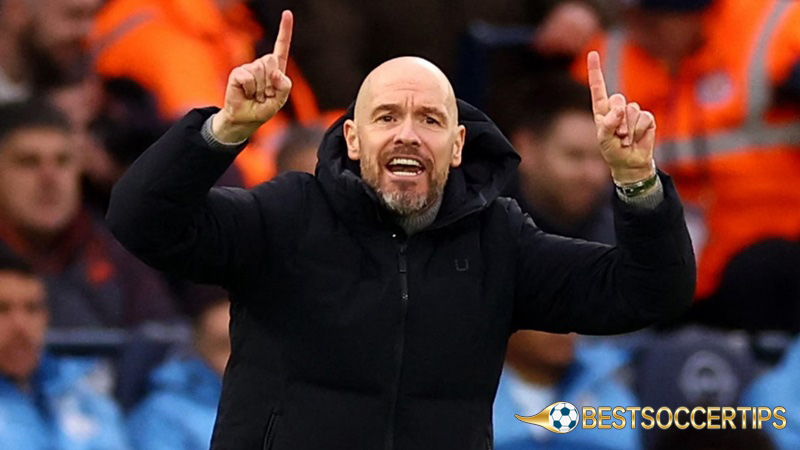
After a promising first year that saw the Red Devils secure Champions League qualification and win the League Cup under his stewardship, the club has regressed in the 2023-24 season. Knocked out of the Champions League and struggling to get back into the top 4 after a lackluster first half of the season, reports emerged in January of unrest in United’s dressing room over Ten Hag. Considering his salary at Old Trafford, fortunes may soon change.
10. Simone Inzaghi – Inter Milan (Annual Salary: £8.8 million)
After a few disappointing years, Inter Milan has returned to the pinnacle of Italian and European football, and Inzaghi is a significant reason why. This tactician has asserted his authority over the team since arriving in 2021, securing several domestic cups with the Nerazzurri and advancing to the Champions League final in 2022-23.
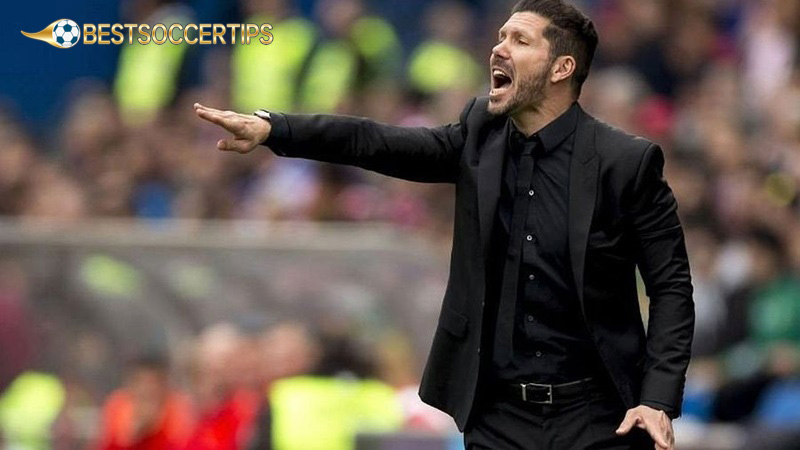
Inzaghi’s contract at San Siro will expire in 2025, and there’s no reason to believe he won’t be offered an extension, especially if he secures another league title this season. If he does get a new deal, it could come with a substantial pay raise – one that could see him break into the top 10.
Conclude
In conclusion, delving into the world of football’s highest-paid managers reveals a landscape where skill, experience, and success intersect to command substantial salaries. From Diego Simeone’s resilience to Pep Guardiola’s tactical brilliance, each manager embodies the essence of leadership and strategic vision. Their salaries not only reflect their individual prowess but also the immense pressure and expectations placed upon them to deliver results on the pitch. As pivotal figures in their clubs’ journeys to success, these managers serve as both inspirations and architects of footballing excellence. Through their achievements and contributions, they continue to shape the future of the sport and cement their legacies among the greats of football management.




